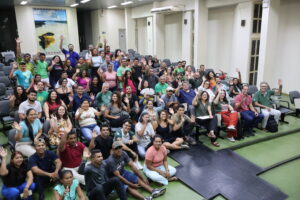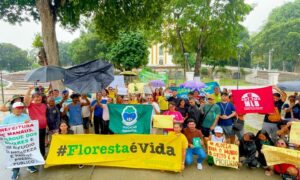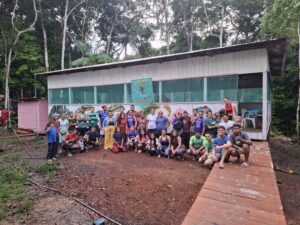Research commissioned by the Association of Agroextractivist Women of Médio Juruá starts this month and intends to bring solutions to strengthen the participation and broaden the visibility of women in the bioeconomy.
By Nathália Messina
This month we started the ASMAMJ (Association of Agroextractivist Women of Médio Juruá) expedition aboard the Hylea, which will investigate how gender and youth participation occurs in the most important chains in the region. They are: murumuru, andiroba, açaí, arapaima, managed fish, rubber and manioc.
The diagnosis is carried out by ASMAMJ in partnership with Instituto Juruá and has support from the “Sustainable Cosmetics from the Amazon” project. This is a develoPPP project, executed by a private public partnership between the companies Natura, Symrise and German Federal Ministry for Economic Cooperation and Development (BMZ) through the Deutsche Gesellschaft für Internationale Zusammenarbeit (GIZ) GmbH.
In early April, representatives of the Médio Juruá Territory participated in the course “Organization and promotion of value chains with a focus on gender”, which directly contributed to the diagnosis. Besides the Instituto Juruá and the Memorial Chico Mendes, which work in the territory, were present the leaders of ASMAMJ, CODAEMJ (Cooperativa Mista de Desenvolvimento Sustentável e Economia Solidária do Médio Juruá); and the Fundo Médio Juruá organizations. The course took place in Manaus, and was promoted by the Amazon Sustainable Cosmetics and Bioeconomy and Value Chains projects. The project is developed under the partnership between the Ministry of Agriculture, Livestock and Supply (MAPA) and the German Cooperation for Sustainable Development, through GIZ, with resources from BMZ and with support from the Eco-Consult/Conexsus consortium.
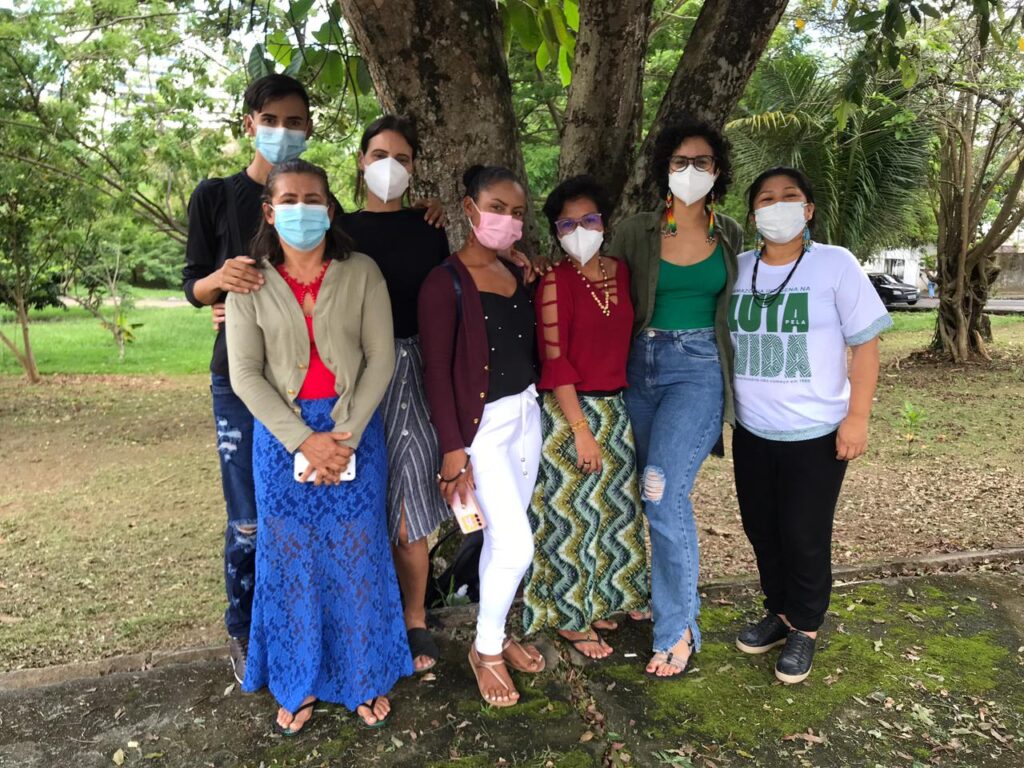
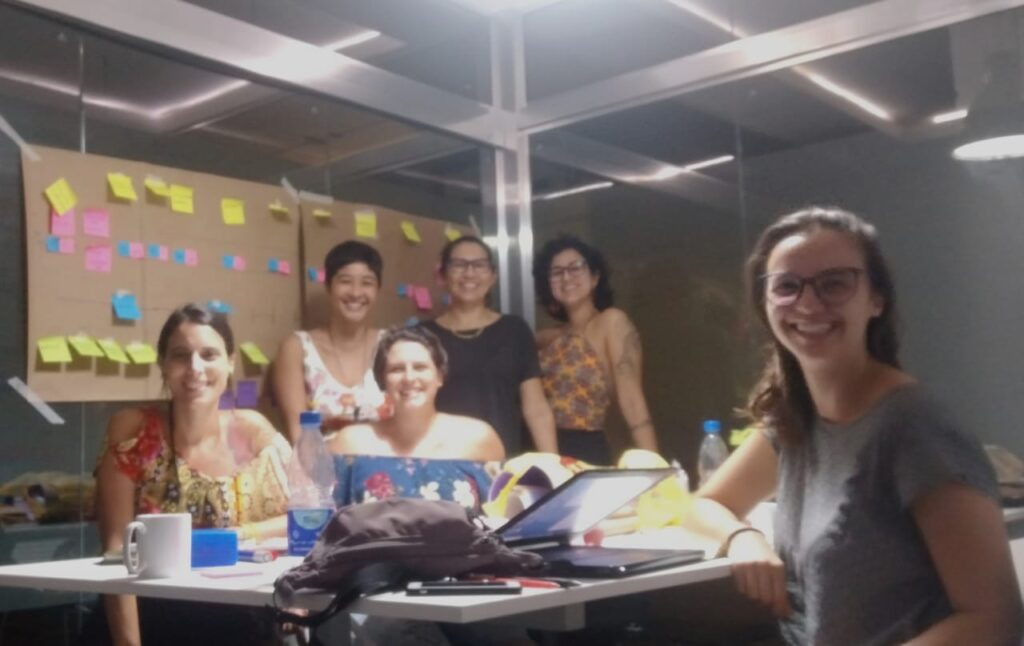
Achieving gender equality and empowering women and girls, especially in peripheral countries with high social inequalities, is an imperative theme worldwide and represents one of the Sustainable Development Goals of the 2030 Agenda. In tropical countries, and especially in rural Amazonia, women’s entrepreneurship in the value chains of sociobiodiversity products is a basic premise for political advocacy and obtaining positive results.
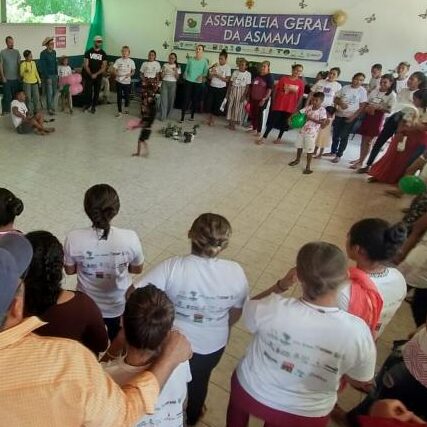

Thus, Instituto Juruá assumed as a goal to increase the participation and recognition of women in the territory of Mid Juruá, counting on ASMAMJ and multiple partnerships, such as AMARU (Associação de Moradores Agroextrativistas da Reserva de Desenvolvimento Sustentável Uacari) and ASPROC (Associação dos Produtores Rurais de Carauari), to carry out this research which will have its results presented by the end of 2022.
After a series of meetings with leaders and ordinary citizens of the territory, we built an approach based on the following complementary components: gender and youth diagnostics on their participation in the value chains; strengthening the social organization of women; and historical rescue of the performance of women in Médio Juruá terrritory.
In addition to the research and diagnosis activities, the action of photographer Fernanda Preto was also planned, through the project CorpoMemória – a therapeutic and training methodology, which provides ongoing research with the expressive use of photography.
Considering that the products generated from this expedition may guide conservation and local development initiatives, with greater visibility of women in the value chains, we have as a guideline the protection of biodiversity aligned with welfare, gender equity and human dignity.

